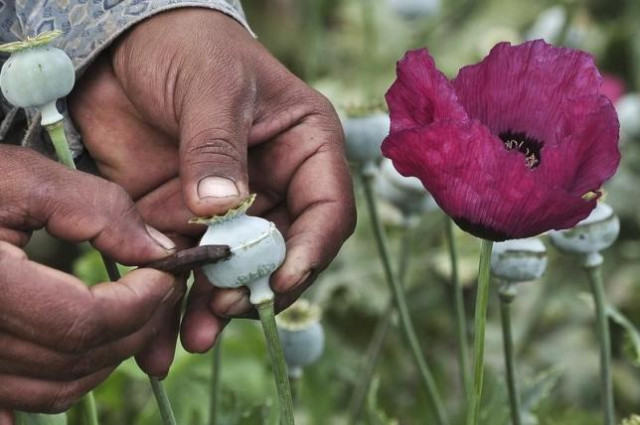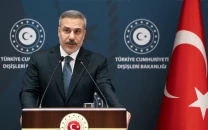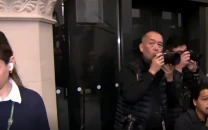Mexico debates legalizing opium poppy for medicine
The idea was launched by governor of the southern state of Guerrero, which has the country's highest murder rate

A man lances a poppy bulb to extract the sap, which will be used to make opium, at a field in the municipality of Heliodoro Castillo, in the mountain region of the state of Guerrero January 3, 2015. PHOTO: REUTERS
The debate has emerged in recent weeks after President Enrique Pena Nieto proposed legislation in April to loosen marijuana laws by legalizing medical cannabis and easing restrictions on its recreational use.
First-month Oregon pot sales tax receipts far exceed projections
Since then, governors and congressional lawmakers have voiced their support for regulating opium poppies, which are often grown by farmers in poor areas of the country and sold to cartels as the raw material for heroin.
The idea was launched by Hector Astudillo, governor of the southern state of Guerrero, which has the country's highest murder rate amid turf wars among drug cartels battling for control of the mountains where US-bound heroin is born.
Astudillo, whose state is the biggest producer of opium poppies, proposed a pilot program for the crop's cultivation for medical uses.
Graco Ramirez, governor of the neighboring crime-plagued state of Morelos, which is a transit route for the drug, voiced his support.
"In (the northwestern state of) Sinaloa and Guerrero, growing opium poppies is a fact of life and we must take it away from the criminals and give it to health," Ramirez said.
Manuel Mondragon y Kalb, the national commissioner against drug addiction, said that his agency is "deeply studying the use of opium gum as medicine, its transformation into morphine and its derivatives as painkillers."
Busted: France, Canada have most teen pot smokers
While Mondragon did not indicate whether the government was drafting some kind of legislation, El Universal newspaper said Wednesday, citing presidency sources, that the government was working on a proposal to send to Congress by the end of the year.
Pena Nieto's spokesman, Eduardo Sanchez, told AFP that he had "no idea about this information" in the newspaper while Health Minister Jose Narro told reporters that Congress must first focus on the marijuana bill.
One backer of such a measure, Senator Miguel Romo, of Pena Nieto's centrist Institutional Revolutionary Party (PRI), said opium poppies are regulated in "a very efficient way" in some countries where it is legal for medical uses, such as Spain.
Australia, France, Turkey, Hungary and India also grow opium poppies legally for the pharmaceutical industry under international licenses.
Senator Roberto Gil, of the conservative National Action Party, said that it "is stupid" that Mexico cannot use opium poppies for medical purposes when it is one of the world's major producers of the crop.
But for Raul Benitez Manaut, a security expert at the National Autonomous University of Mexico, such a measure would not reduce violence in Guerrero because the illegal heroin market in the United States will always be too lucrative for cartels to give it up.
"The profit from the illegal drug is much, much higher than any legal cultivation, even if it is very profitable," he told AFP.
'Grown in Washington': the marijuana farms near US power hub
In January, a farmer told AFP in an interview at his small opium poppy field that a parcel owner could sell a kilogram of opium gum for $925. A farmer hired to cut the bulbs to extract the sticky substance can make $16 per day, four times the minimum wage.
Between 15 and 25 kilograms of the raw material are needed to make just one kilogram of heroin, which drug dealers buy for around $50,000 in the United States.
Residents from poppy growing communities in Guerrero joined a protest organized by taxi and truck drivers last month in the state's capital, Chilpancingo, which ended in violence with 71 people arrested.
Some of the protesters demanded that the army stop fumigating opium poppies.



















COMMENTS
Comments are moderated and generally will be posted if they are on-topic and not abusive.
For more information, please see our Comments FAQ